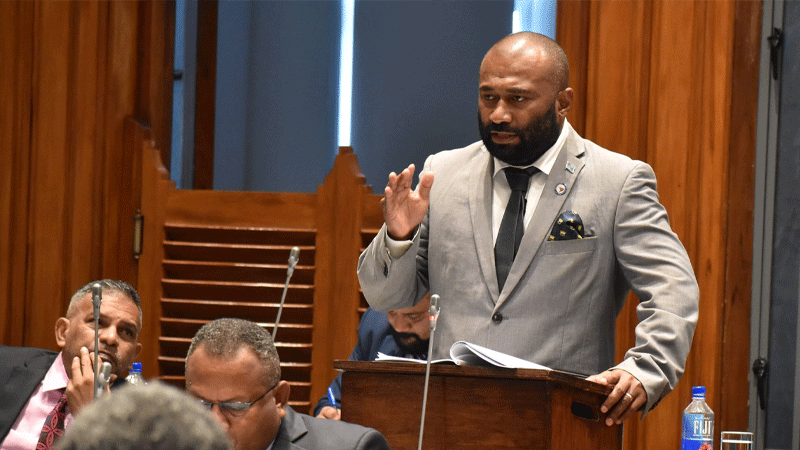
13 people have died because of leptospirosis and the Health Ministry has also recorded 530 cases after Tropical Cyclones Yasa and Ana this year.
The Health Ministry has also recorded one death because of typhoid and 3,053 cases while 1,747 cases of dengue fever has also been recorded after the 2 cyclones.
This has been confirmed by Minister for Health, Doctor Ifereimi Waqainabete in parliament while responding to a question by SODELPA MP, Ratu Tevita Navurelevu on the Ministry’s efforts to combat the spread of typhoid, leptospirosis, dengue fever and diarrhoea in the aftermath of Tropical Cyclones Yasa and Ana.
Waqainabete says it is becoming apparent in settlements, communities and villages that despite the many visitations by them, some villages do not have the same urge to combat the diseases as other villages.
The Minister says community health workers have raised with him that because they are women, their voices are not heard.
He says the Ministry of Health staff are continuously going out into the communities and are providing awareness but they need to ask the leadership in the communities to take heed of the advice.
Waqainabete highlighted this while responding to a question by SODELPA MP Adi Litia Qionibaravi on what action is being planned by the Ministry to ensure that the rural community nurses and Turaga ni Koro are informed on what measures should be undertaken to ensure a reduction in the spread of the diseases. He says their widespread community strategy includes visiting these villages where the ministry staff sit down with the Turaga ni Koro and the community health workers and they are given information on the important things they need to watch out for and phone numbers of the health staff they could contact.
He also says that the Ministry’s assets and their staff as well as the Fiji Emergency Medical Assistance Team are placed in key areas where the disaster is likely to strike to be ready once the disaster has finished.
The Minister says when a person comes with mild symptoms, their contact details are noted and the staff follow it up with them the next day and those who present moderate to severe symptoms are admitted.
Waqainabete says people need to make sure that their surroundings are clean, items that can carry water are overturned or put away and people should also go to the hospital if they are sick.
He adds that it is also disconcerting to see young children jumping into flooded rivers and drains as there is not only a risk of drowning, there is also a risk of leptospirosis and other climate-sensitive diseases.
Stay tuned for the latest news on our radio stations


